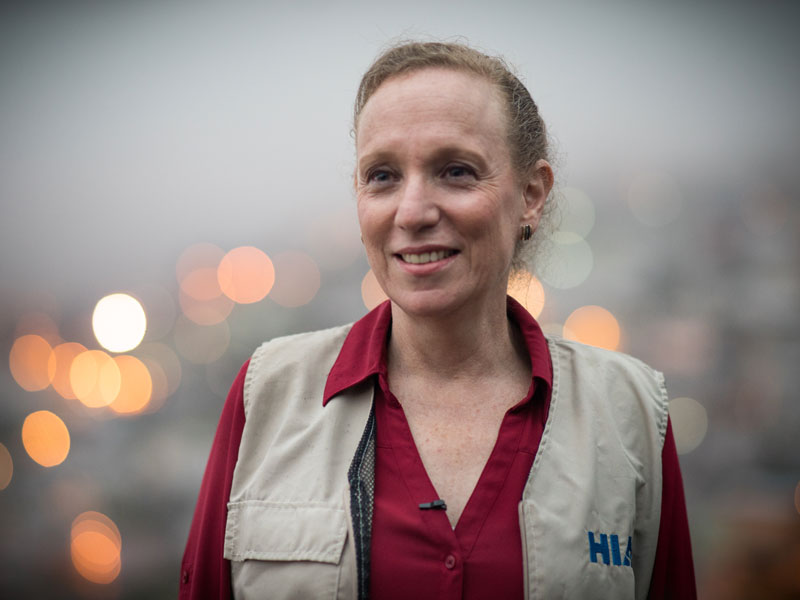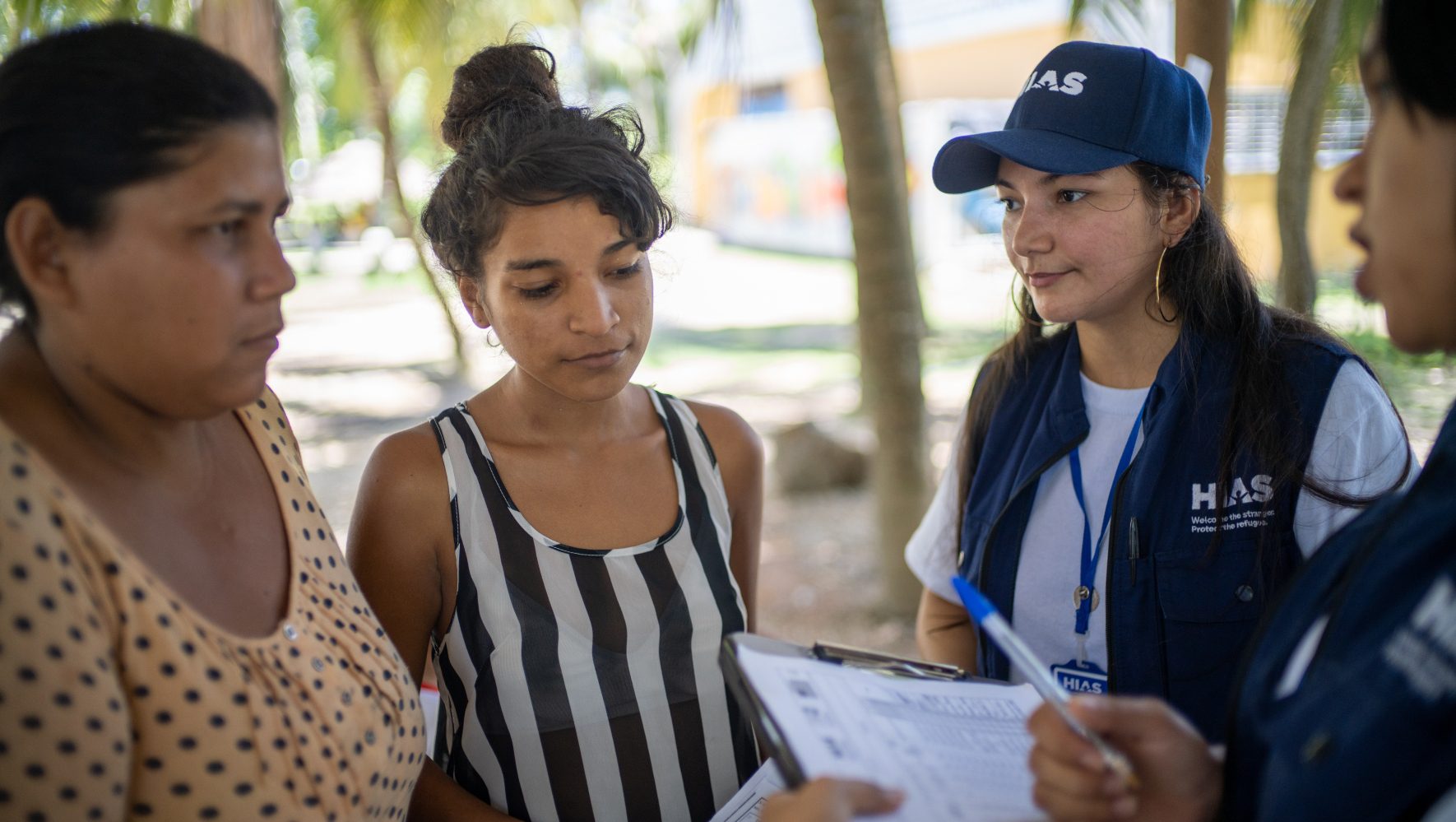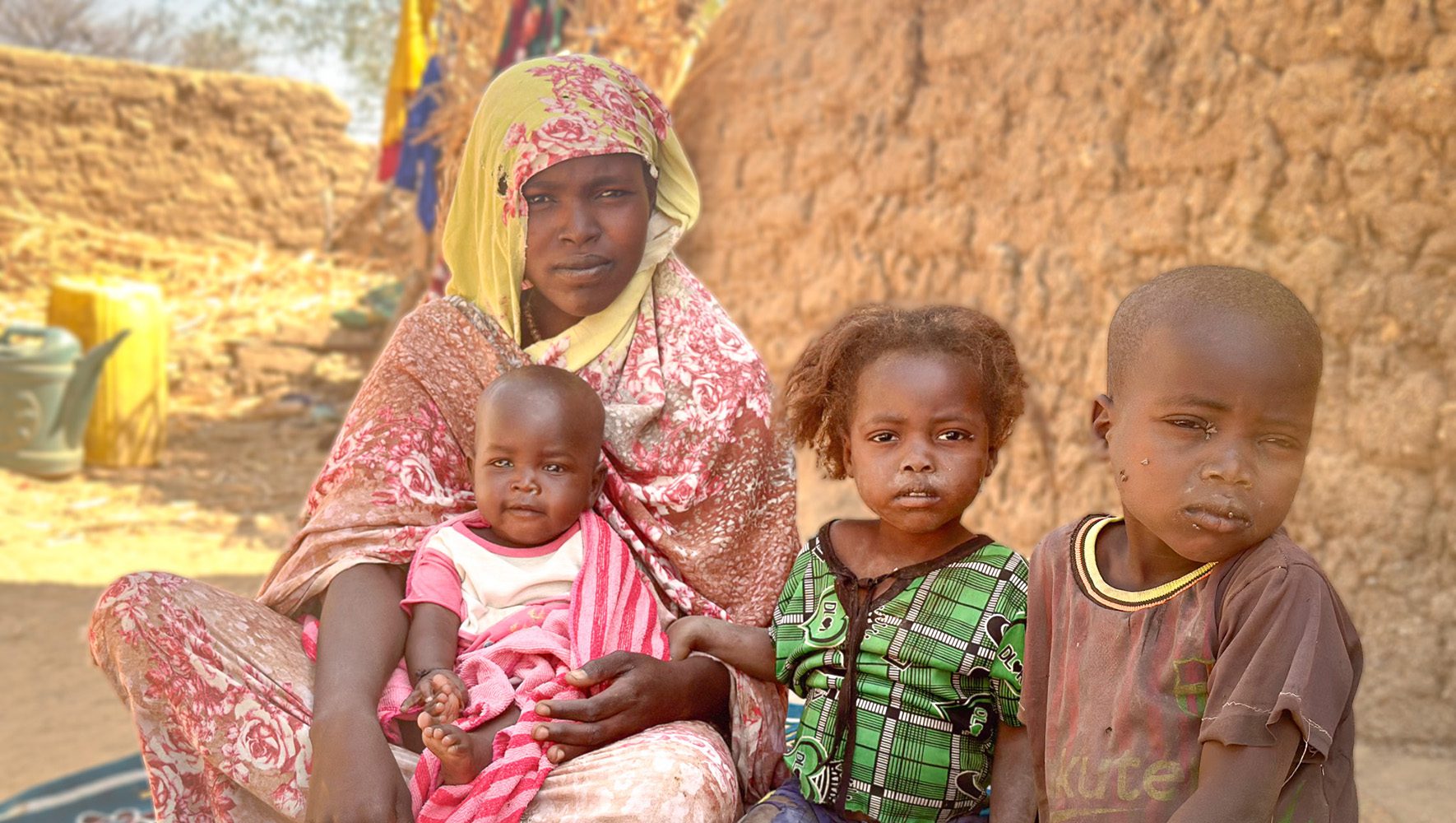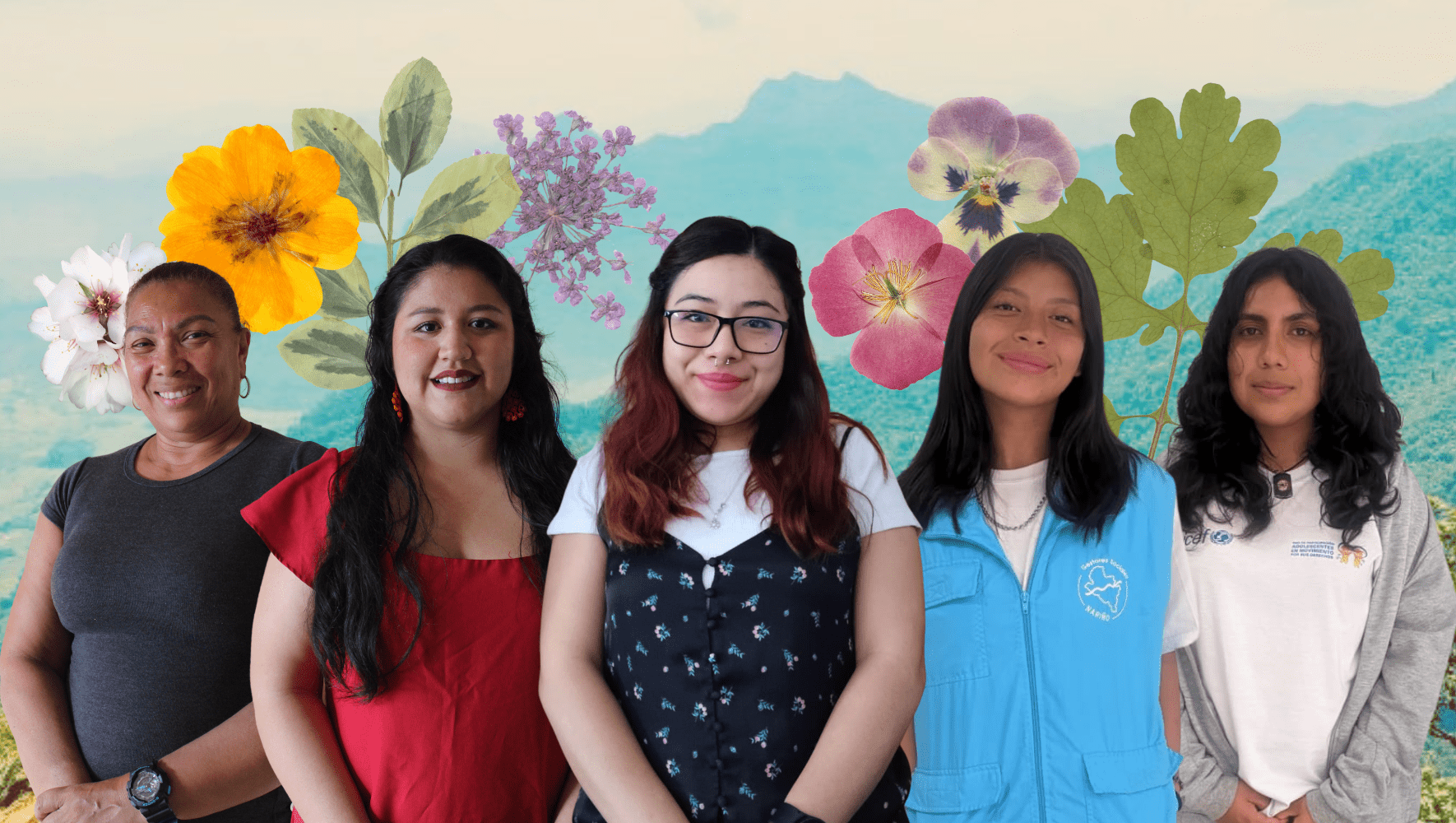For HIAS’ New Executive Vice President, It’s Personal
By Sharon Samber, HIAS.org
May 25, 2021

Sabrina Lustgarten, HIAS' new executive vice president and former director of HIAS Ecuador, outside Quito. October 2019.
(Isadora Romero for HIAS)
When Sabrina Lustgarten first started as HIAS Ecuador’s country director, her personal connection was the stuff of family lore. With her new promotion, she hopes to continue her mission and HIAS’ mission to help ensure the futures of many more families.
When Lustgarten’s grandparents fled World War II it was HIAS that stepped in to make certain they got to rebuild their lives in Colombia. It was an intervention that the family never forgot. And so it was with a sense of history and gratitude that Lustgarten began her career at HIAS more than 50 years later when she opened the office in Ecuador in 2003 to respond to the crisis in Colombia, where ongoing fighting had resulted in thousands of Colombians seeking asylum.
She called the job opportunity “a gift of life and fate,” and her chance to give back. Lustgarten gave back for nearly 20 years as HIAS Ecuador’s country director, and she will continue her work, only now as HIAS’ executive vice president, a new role within the organization. Lustgarten’s rise in the organization is both a personal recognition of her success and HIAS’ understanding of the importance of the direct service work of country offices.
For Lustgarten, who started her new job just last week, the lessons learned at the very beginning of her time with HIAS still stand. With an initial $35,000 budget she could not even afford rent for an office, so she and her staff had to meet in coffee shops. Lustgarten’s first project helped refugees in Lago Agrio, a northern border city in the Amazon region that welcomed many Colombian families, and with only four part-time psychologists HIAS supported those refugees who had experienced trauma and torture.
The myriad challenges only made Lustgarten try harder. “It did not stop us from doing our best,” Lustgarten recalled. But the goal was and continues to be placing the refugees at the center of HIAS’ work, Lustgarten emphasizes. In her new role Lustgarten wants to strengthen collaboration between headquarters and the field, and among all international offices, but always with the refugee in mind.
“The refugee is the first person to attend to in the chain of responsibilities,” she said.
HIAS President and CEO Mark Hetfield echoed that sentiment. “Sabrina's presence at headquarters brings us closer to the field and the refugees we serve,” Hetfield said, noting that the Colombian-born and native Spanish speaker Lustgarten also knows how to lead. “Sabrina is the very personification of HIAS, and is already responsible for so much of our growth and success,” he said.
Lustgarten certainly leaves a legacy of profound change in Ecuador and across Latin America. After more than 18 years in Ecuador she built that small budget up to $17.8 million (2020) and expanded that non-office to 16 offices and 420 staff. In 2007, Lustgarted helped HIAS start operations in Venezuela; in 2010, in Panama; and in Peru in 2019.
But it was in 2017 that Lustgarten found herself in the middle of the most acute crisis that the region had ever experienced: millions of Venezuelans fleeing and trying to rebuild their lives in neighboring countries. She and her staff were at the border at the peak of the crisis, when Venezuelan refugees entering Ecuador averaged more than 8,000 per day.
Knowing how to respond to people and changing situations is perhaps the greatest skill that Lustgarten brings to her leadership position. Her empathy and desire to improve allows her to understand how important it is to support everyone across the organization.
“All of us are overwhelmed, we are growing, so we have to be more supportive and do things smoothly and facilitate the work,” she said. “Everyone is moving forward but sometimes we can lose the connection, so we must work as a team. We need channels of communication.”
While HIAS is well known within the countries where it operates, Lustgarten admits that being recognized for its global reach is something that needs to be worked on, particularly in the United States, so that people can understand HIAS’ work more fully.
“I think it is very important for HIAS to be better known to the external audience,” she said. “We are a truly international organization.”


